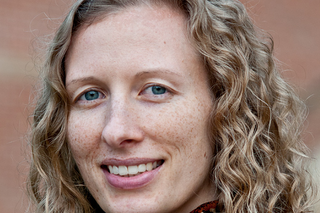Rebecca Dirksen: Music Research and Ecological Activism in Haiti

Interviewed by Ben Bond (M.Div. ‘22)
Introduction by Clare Byrne (M.A.R. ‘22)
Rebecca Dirksen’s recent book After the Dance, the Drums Are Heavy: Carnival, Politics, and Musical Engagement in Haiti delves into the Haitian concept of Mizik Angaje—socially or politically engaged music—in examining the musical traditions of Carnival. In the spiralling connections of Haitian culture, she notes that the “spaces of Carnival often become political spaces.” In continuing her radically interdisciplinary research at the ISM, Dirksen considers Haiti as one of the most vulnerable nations in the world to the effects of climate change, and subject to dire injustice in the aftermath of natural disasters. She reframes this global eco-inequality for infrastructure-poor nations like Haiti within the context of sacred music and metaphysical traditions of Voudon, “long-established ancient practice of looking at the universe in a more encompassing way.” Her conceptual work posits that these religious and musical practices may be a much-needed remedy for pressing ecological concerns of the planet.
Dirksen is associate professor in the Department of Folklore and Ethnomusicology at Indiana University, with a twenty-five-year history of living, researching, and writing about Haitian musical genres, religion, culture, and environment. She was a 2016–17 Radcliffe Fellow at the Radcliffe Institute for Advanced Study at Harvard University. Her work has been published in the Yearbook for Traditional Music, Ethnomusicology Review, the Bulletin du Bureau d’Ethnologie de la Republique d’Haïti, Conjonction, and elsewhere.
Rebecca Dirksen: Music Research and Ecological Activism in Haiti
Rebecca Dirksen’s recent book After the Dance, the Drums Are Heavy: Carnival, Politics, and Musical Engagement in Haiti delves into the Haitian concept of Mizik Angaje—socially or politically engaged music—in examining the musical traditions of Carnival.